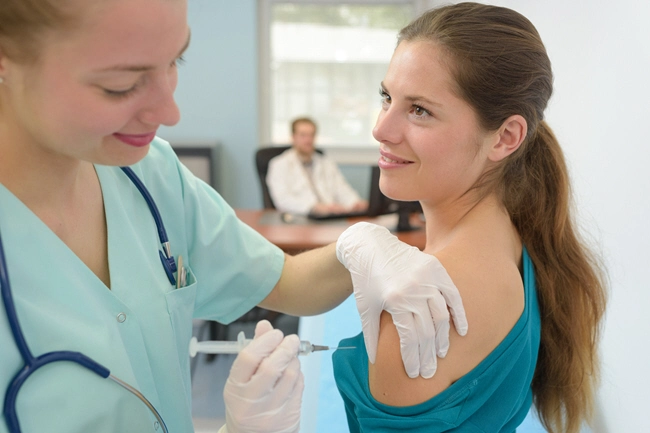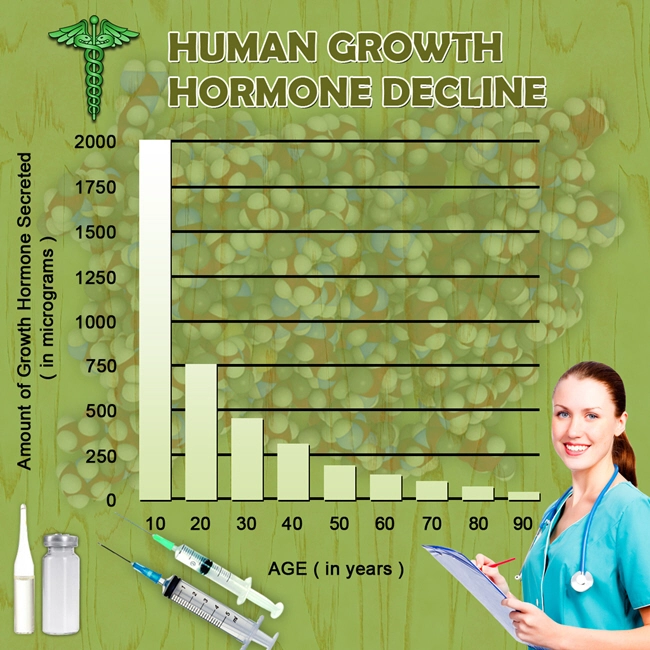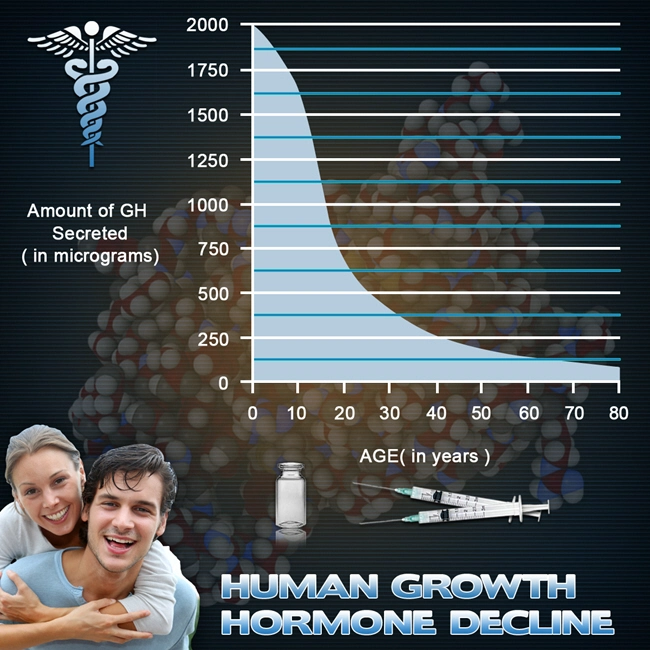
Introduction
Anterior cruciate ligament (ACL) injuries are a significant concern in sports that involve rapid deceleration, pivoting, and jumping, such as lacrosse. These injuries can sideline athletes for months and may have long-term implications for joint health. Sports medicine has evolved to offer strategies that aim to reduce the incidence of such injuries. This article delves into a three-year prospective study that examines the effectiveness of sports medicine interventions in preventing ACL injuries among American male lacrosse players, offering insights into how these strategies can enhance athletic performance and longevity.
Study Design and Methodology
The study followed a cohort of 250 male lacrosse players over three seasons, implementing a comprehensive sports medicine program that included targeted strength training, flexibility exercises, and neuromuscular training focused on improving balance and proprioception. The program was designed by a team of sports medicine professionals, including orthopedic surgeons, physical therapists, and athletic trainers. Players were divided into an intervention group, which received the sports medicine program, and a control group, which continued with standard training practices.
Results and Analysis
Over the three-year period, the intervention group showed a significant reduction in ACL injuries compared to the control group. Specifically, the intervention group reported a 60% decrease in ACL injuries, with only 5 cases recorded compared to 12 in the control group. This outcome highlights the effectiveness of the sports medicine program in reducing the risk of ACL injuries among male lacrosse players.
Further analysis revealed that the intervention group also demonstrated improvements in overall athletic performance metrics, such as sprint times and vertical jump heights. These enhancements suggest that the sports medicine program not only helps in injury prevention but also contributes to better athletic performance, which is crucial for competitive sports like lacrosse.
Discussion
The success of the sports medicine program in reducing ACL injuries can be attributed to several key components. The neuromuscular training component, which focuses on improving balance and proprioception, is particularly effective in teaching athletes how to better control their bodies during high-risk movements. Additionally, the strength and flexibility exercises help in building a more resilient musculoskeletal system, capable of withstanding the stresses of competitive play.
The implications of these findings are significant for coaches, trainers, and athletes. Incorporating a sports medicine program into regular training routines can lead to a safer playing environment and potentially extend the careers of athletes by minimizing the risk of serious injuries like ACL tears.
Challenges and Future Directions
Despite the promising results, implementing such programs on a wider scale presents challenges. These include the need for specialized training for coaches and trainers, as well as the allocation of resources for equipment and personnel. Future research should focus on developing cost-effective and scalable models of these programs to ensure they can be adopted by teams at various levels of competition.
Additionally, long-term studies are needed to assess the sustained impact of these interventions on injury rates and overall athletic performance. Such studies could also explore the potential benefits of integrating advanced technologies, such as wearable devices, to monitor athletes' biomechanics and provide real-time feedback on injury risk.
Conclusion
The three-year prospective study underscores the effectiveness of sports medicine in reducing ACL injuries among American male lacrosse players. By integrating targeted training programs, athletes can enjoy a safer and more productive sports experience. As sports medicine continues to evolve, its role in enhancing athletic performance and preventing injuries will become increasingly vital, offering hope for a future where athletes can compete at their best, with minimized risk of injury.
Contact Us Today For A Free Consultation
Dear Patient,
Once you have completing the above contact form, for security purposes and confirmation, please confirm your information by calling us.
Please call now: 1-800-380-5339.
Welcoming You To Our Clinic, Professor Tom Henderson.

- Preventing Ankle Injuries in American Male Volleyball Players: A Comprehensive Guide [Last Updated On: March 14th, 2025] [Originally Added On: March 14th, 2025]
- Rowing and Lower Back Pain: Sports Medicine's Role in Prevention and Treatment [Last Updated On: March 16th, 2025] [Originally Added On: March 16th, 2025]
- Optimizing Recovery for American Male Martial Artists: A Holistic Approach [Last Updated On: March 18th, 2025] [Originally Added On: March 18th, 2025]
- Hamstring Injuries in Sprinters: Diagnosis, Treatment, and Prevention Strategies [Last Updated On: March 18th, 2025] [Originally Added On: March 18th, 2025]
- Surfing Injuries in American Males: Prevention, Treatment, and Performance Enhancement [Last Updated On: March 19th, 2025] [Originally Added On: March 19th, 2025]
- Sports Medicine's Vital Role in Enhancing Triathlete Performance and Health [Last Updated On: March 20th, 2025] [Originally Added On: March 20th, 2025]
- Sports Medicine Revolutionizes Injury Management for American Male Figure Skaters [Last Updated On: March 20th, 2025] [Originally Added On: March 20th, 2025]
- Wrist Injuries in American Male Snowboarders: Epidemiology, Prevention, and Management [Last Updated On: March 20th, 2025] [Originally Added On: March 20th, 2025]
- Sports Medicine's Role in Preventing Overuse Injuries in American Male Climbers [Last Updated On: March 20th, 2025] [Originally Added On: March 20th, 2025]
- Ultimate Frisbee: Knee Health Strategies for American Male Players [Last Updated On: March 21st, 2025] [Originally Added On: March 21st, 2025]
- Sports Medicine Enhances Performance and Health for American Male Polo Players [Last Updated On: March 21st, 2025] [Originally Added On: March 21st, 2025]
- Sports Medicine Enhances Performance and Longevity in American Male Badminton Players [Last Updated On: March 21st, 2025] [Originally Added On: March 21st, 2025]
- Sports Medicine Revolutionizes CrossFit: Enhancing Performance and Health for American Males [Last Updated On: March 22nd, 2025] [Originally Added On: March 22nd, 2025]
- Sports Medicine Benefits for American Male Water Polo Players: Performance, Recovery, Nutrition [Last Updated On: March 22nd, 2025] [Originally Added On: March 22nd, 2025]
- Sports Medicine's Crucial Role in BMX Rider Recovery and Rehabilitation [Last Updated On: March 22nd, 2025] [Originally Added On: March 22nd, 2025]
- Preventing Shoulder Injuries in Lacrosse Goalies: A Sports Medicine Approach [Last Updated On: March 23rd, 2025] [Originally Added On: March 23rd, 2025]
- Sports Medicine's Vital Role in Enhancing Rugby Sevens Performance and Safety [Last Updated On: March 23rd, 2025] [Originally Added On: March 23rd, 2025]
- Preventing Stress Fractures in American Male Runners: Sports Medicine Strategies [Last Updated On: March 23rd, 2025] [Originally Added On: March 23rd, 2025]
- Tendonitis in American Male Tennis Players: Diagnosis, Treatment, and Prevention Strategies [Last Updated On: March 23rd, 2025] [Originally Added On: March 23rd, 2025]
- Rotator Cuff Injuries in American Male Swimmers: Diagnosis, Treatment, and Prevention [Last Updated On: March 24th, 2025] [Originally Added On: March 24th, 2025]
- Optimizing Recovery for Male Wide Receivers: Sports Medicine Strategies [Last Updated On: March 24th, 2025] [Originally Added On: March 24th, 2025]
- Sports Medicine Revolutionizes Training for American Male Handball Athletes [Last Updated On: March 24th, 2025] [Originally Added On: March 24th, 2025]
- Sports Medicine's Role in Enhancing American Male Fencers' Performance and Health [Last Updated On: March 24th, 2025] [Originally Added On: March 24th, 2025]
- Hip Issues in American Male Track Cyclists: Sports Medicine's Role and Innovations [Last Updated On: March 24th, 2025] [Originally Added On: March 24th, 2025]
- Preventing Back Injuries in American Male Rowers: A Holistic Sports Medicine Approach [Last Updated On: March 24th, 2025] [Originally Added On: March 24th, 2025]
- Preventing Shin Splints in American Male Runners: Sports Medicine Strategies [Last Updated On: March 24th, 2025] [Originally Added On: March 24th, 2025]
- Sports Medicine Revolutionizes Injury Management for American Male Swimmers [Last Updated On: March 25th, 2025] [Originally Added On: March 25th, 2025]
- Sports Medicine Benefits for American Male Trampoline Gymnasts: Performance and Health [Last Updated On: March 25th, 2025] [Originally Added On: March 25th, 2025]
- Optimizing Recovery and Performance for American Male Soccer Goalkeepers: A Sports Medicine Approach [Last Updated On: March 25th, 2025] [Originally Added On: March 25th, 2025]
- Sports Medicine Advances Aid Lacrosse Midfielders' Hip Health and Performance [Last Updated On: March 25th, 2025] [Originally Added On: March 25th, 2025]
- Preventing Hamstring Injuries in American Male Soccer Midfielders: Advanced Techniques [Last Updated On: March 25th, 2025] [Originally Added On: March 25th, 2025]
- Sports Medicine's Crucial Role in Recovery for American Male Soccer Defenders [Last Updated On: March 26th, 2025] [Originally Added On: March 26th, 2025]
- Sports Medicine Benefits for American Male Table Tennis Players: Performance and Health [Last Updated On: March 26th, 2025] [Originally Added On: March 26th, 2025]
- Sports Medicine: Enhancing Performance and Health for American Male Track Athletes [Last Updated On: March 26th, 2025] [Originally Added On: March 26th, 2025]
- Sports Medicine's Impact on Recovery Times in American Male Ice Hockey Players [Last Updated On: March 26th, 2025] [Originally Added On: March 26th, 2025]
- Sports Medicine's Impact on Injury Management in American Male Field Hockey [Last Updated On: March 26th, 2025] [Originally Added On: March 26th, 2025]
- Sports Medicine's Role in Enhancing Volleyball Performance and Longevity for American Males [Last Updated On: March 26th, 2025] [Originally Added On: March 26th, 2025]
- Ankle Health Strategies for American Male Beach Volleyball Players [Last Updated On: March 26th, 2025] [Originally Added On: March 26th, 2025]
- Sports Medicine's Vital Role in Enhancing Rugby Forwards' Health and Performance [Last Updated On: March 27th, 2025] [Originally Added On: March 27th, 2025]
- Sports Medicine Revolutionizes Training for American Male Cyclists [Last Updated On: March 27th, 2025] [Originally Added On: March 27th, 2025]
- Cross-Country Skiing: Enhancing Knee Health and Performance in American Males [Last Updated On: March 27th, 2025] [Originally Added On: March 27th, 2025]
- Muscle Health Strategies for American Male Speed Skaters: Enhancing Performance and Longevity [Last Updated On: March 27th, 2025] [Originally Added On: March 27th, 2025]
- Lacrosse Shoulder Injuries: Diagnosis, Treatment, and Prevention Strategies [Last Updated On: March 27th, 2025] [Originally Added On: March 27th, 2025]
- Sports Medicine Advances Extend Careers of American Male Baseball Pitchers [Last Updated On: March 28th, 2025] [Originally Added On: March 28th, 2025]
- Managing Groin Injuries in American Male Hockey Players: A Holistic Approach [Last Updated On: March 28th, 2025] [Originally Added On: March 28th, 2025]
- Sports Medicine Advances Extend Careers of American Male Baseball Outfielders [Last Updated On: March 28th, 2025] [Originally Added On: March 28th, 2025]
- Sports Medicine Strategies to Prevent Achilles Tendon Injuries in American Male Runners [Last Updated On: March 28th, 2025] [Originally Added On: March 28th, 2025]
- Ankle Health Strategies for Basketball Point Guards: Prevention, Care, and Longevity [Last Updated On: March 28th, 2025] [Originally Added On: March 28th, 2025]
- Knee Health Management for Football Running Backs: Prevention, Treatment, Rehabilitation [Last Updated On: March 29th, 2025] [Originally Added On: March 29th, 2025]
- Sports Medicine: Enhancing Performance and Health in Basketball Forwards [Last Updated On: March 30th, 2025] [Originally Added On: March 30th, 2025]
- Sports Medicine Strategies for Recovery in American Male Soccer Forwards [Last Updated On: March 30th, 2025] [Originally Added On: March 30th, 2025]
- Sports Medicine's Impact on American Male Cyclists' Performance and Health [Last Updated On: March 30th, 2025] [Originally Added On: March 30th, 2025]
- Sports Medicine's Comprehensive Role in Enhancing American Male Swimmers' Performance and Recovery [Last Updated On: March 31st, 2025] [Originally Added On: March 31st, 2025]
- Sports Medicine's Role in Enhancing American Male Volleyball Players' Performance and Health [Last Updated On: March 31st, 2025] [Originally Added On: March 31st, 2025]
- Sports Medicine: Enhancing Performance and Health in American Male Track Athletes [Last Updated On: April 2nd, 2025] [Originally Added On: April 2nd, 2025]
- Knee Health Strategies for American Male Cross-Country Skiers [Last Updated On: April 3rd, 2025] [Originally Added On: April 3rd, 2025]
- Sports Medicine: Enhancing Performance and Health for Basketball Forwards [Last Updated On: April 7th, 2025] [Originally Added On: April 7th, 2025]
- Sports Medicine: Enhancing Rugby Forwards' Performance and Health [Last Updated On: April 8th, 2025] [Originally Added On: April 8th, 2025]
- Lacrosse Midfielders' Hip Injuries: Sports Medicine's Role in Recovery and Prevention [Last Updated On: April 8th, 2025] [Originally Added On: April 8th, 2025]
- Managing Groin Injuries in American Male Hockey Players: Diagnosis, Treatment, and Prevention [Last Updated On: April 8th, 2025] [Originally Added On: April 8th, 2025]
- Preventing Hamstring Injuries in American Male Soccer Midfielders: A Sports Medicine Approach [Last Updated On: April 8th, 2025] [Originally Added On: April 8th, 2025]
- Optimizing Recovery for American Male Soccer Forwards: A Holistic Approach [Last Updated On: April 10th, 2025] [Originally Added On: April 10th, 2025]
- Sports Medicine Advances Extend Careers of American Male Baseball Outfielders [Last Updated On: April 11th, 2025] [Originally Added On: April 11th, 2025]
- Sports Medicine's Role in Preventing Achilles Tendon Injuries in American Male Runners [Last Updated On: April 11th, 2025] [Originally Added On: April 11th, 2025]
- Knee Health Strategies for American Football Running Backs: Prevention to Recovery [Last Updated On: April 11th, 2025] [Originally Added On: April 11th, 2025]
- Sports Medicine Advances Enhance Performance, Longevity in American Male Swimmers [Last Updated On: April 13th, 2025] [Originally Added On: April 13th, 2025]
- Sports Medicine Benefits for American Male Track and Field Athletes: Performance and Health [Last Updated On: April 13th, 2025] [Originally Added On: April 13th, 2025]
- Sports Medicine Revolutionizes Training and Health for American Male Cyclists [Last Updated On: April 15th, 2025] [Originally Added On: April 15th, 2025]
- Sports Medicine: Revolutionizing Rugby Forwards' Performance and Health [Last Updated On: April 15th, 2025] [Originally Added On: April 15th, 2025]
- Cross-Country Skiing: Knee Health Risks, Prevention, and Management Strategies [Last Updated On: April 16th, 2025] [Originally Added On: April 16th, 2025]
- Preventing Achilles Tendon Injuries in American Male Runners: A Sports Medicine Approach [Last Updated On: April 17th, 2025] [Originally Added On: April 17th, 2025]
- Sports Medicine Enhances Performance and Longevity in American Male Volleyball Players [Last Updated On: April 18th, 2025] [Originally Added On: April 18th, 2025]
- Sports Medicine Advances Aid Lacrosse Midfielders' Hip Health and Career Longevity [Last Updated On: April 18th, 2025] [Originally Added On: April 18th, 2025]
- Preventing Hamstring Injuries in American Male Soccer Midfielders: A Comprehensive Guide [Last Updated On: April 18th, 2025] [Originally Added On: April 18th, 2025]
- Groin Injuries in Hockey: Diagnosis, Treatment, and Prevention Strategies [Last Updated On: April 18th, 2025] [Originally Added On: April 18th, 2025]
- Optimal Recovery Strategies for American Male Soccer Forwards: A Comprehensive Guide [Last Updated On: April 18th, 2025] [Originally Added On: April 18th, 2025]
- Knee Health Strategies for American Football Running Backs: Prevention to Rehabilitation [Last Updated On: April 19th, 2025] [Originally Added On: April 19th, 2025]
- Sports Medicine: Enhancing Performance and Recovery for Basketball Forwards [Last Updated On: April 19th, 2025] [Originally Added On: April 19th, 2025]
- Advanced Sports Medicine Techniques Revolutionizing Injury Prevention in Basketball [Last Updated On: April 21st, 2025] [Originally Added On: April 21st, 2025]
- Study Reveals Strategies to Reduce Overuse Injuries in Youth Baseball Players [Last Updated On: April 23rd, 2025] [Originally Added On: April 23rd, 2025]








